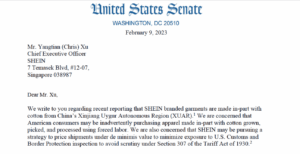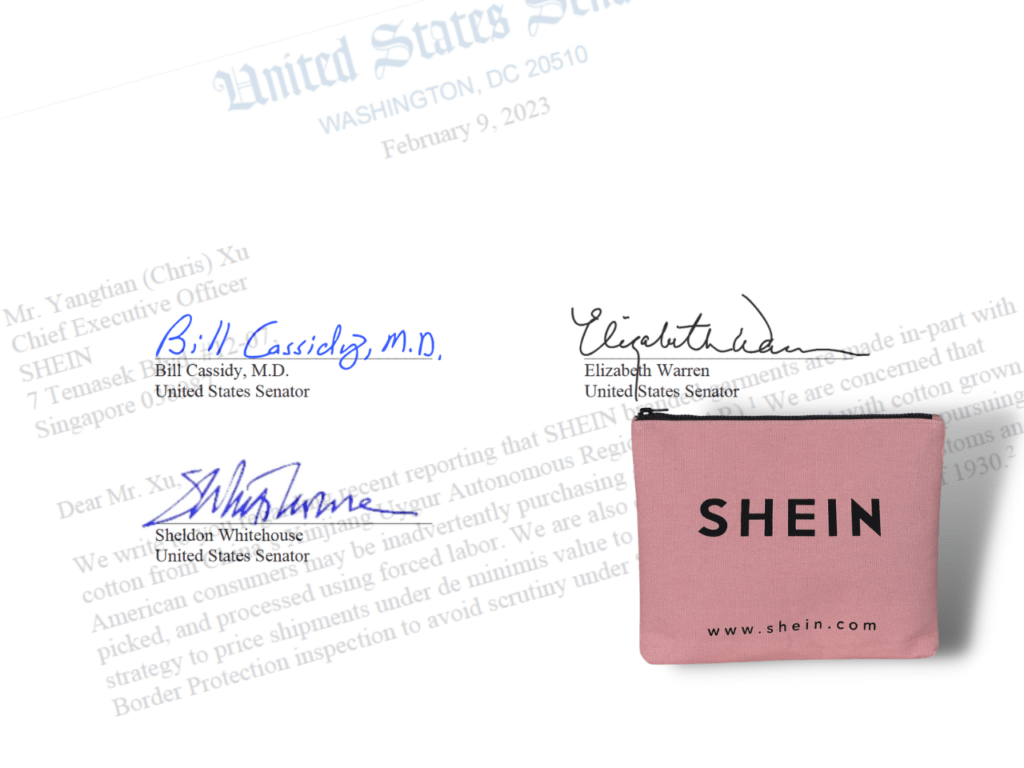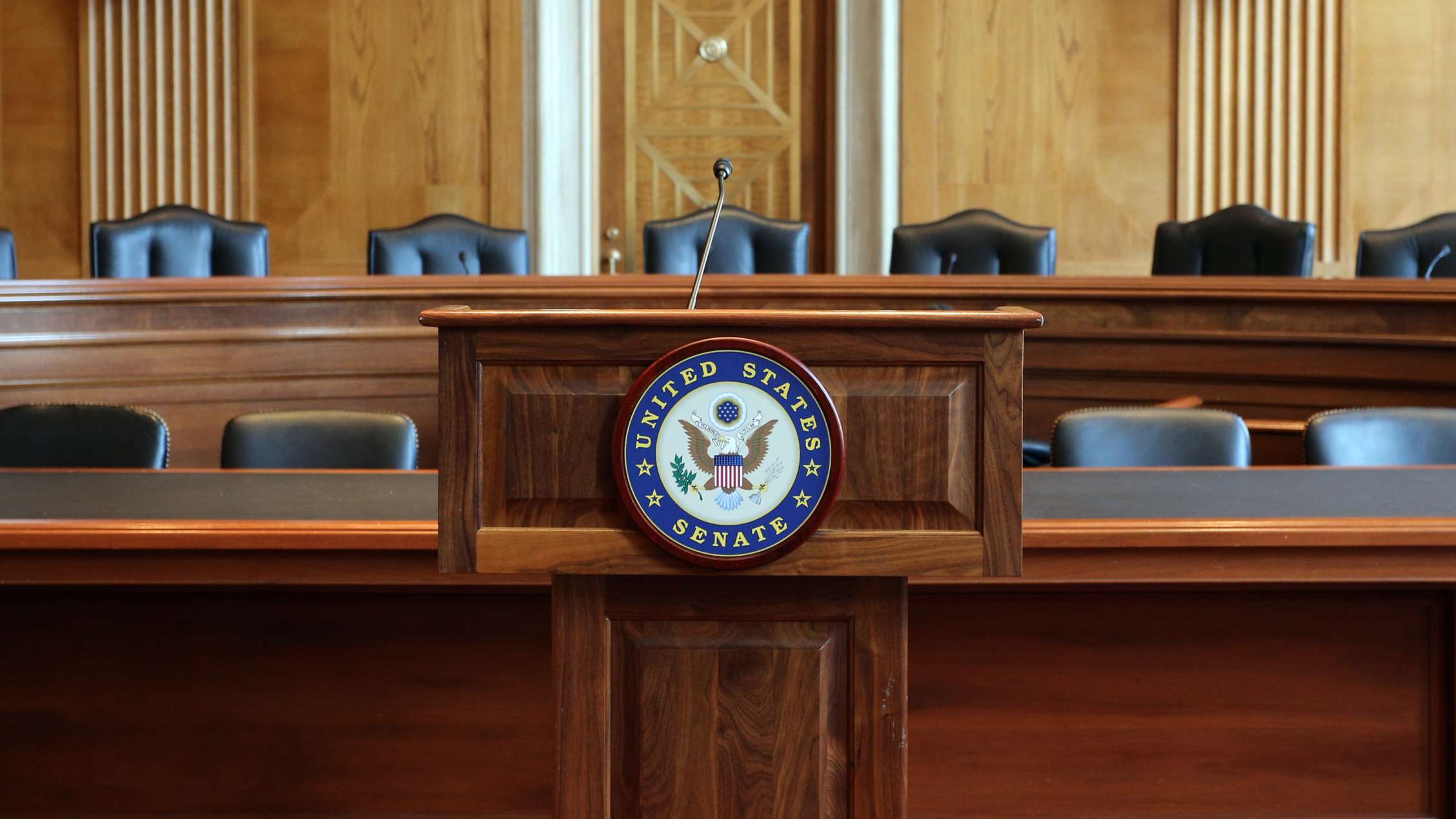Two Democrats and one Republican sent a letter to executives of China’s leading fast-fashion online retailer SHEIN on Thursday, asking if they can be sure clothing items sold to the U.S. are not using banned Xinjiang cotton.

The letter was signed by Sens. Elizabeth Warren (D-MA), Sheldon Whitehouse (D-RI), and Bill Cassidy (R-LA).
Cotton from China’s Xinjiang province is completely banned from U.S. supply chains under suspicion of forced labor practices there. Late last year, a report by Bloomberg, using textile testing labs in Germany, said that some of the clothing items Bloomberg purchased from SHEIN could be linked to the type of cotton grown in Xinjiang.
SHEIN is like Amazon for clothing. It is part of the new trend of connecting the U.S. consumer directly to China. The business model works because SHEIN can count on hundreds of stitch and sew factories of all sizes whose products are sold online on the SHEIN website and sold to the U.S. duty-free, and with virtually no chance of inspection, thanks to the de minimis rule mentioned in the letter by the Senators. That rule allows for packages priced at under $800 to be sent from any fly-by-night vendor in the world, directly through the mail or express courier to Americans’ homes. Closing that loophole would drastically disrupt SHEIN, and other businesses that have exploited de minimis.
The Senators asked SHEIN 11 questions about its supply chain and de minimis shipment volume, and asked for a response within 30 days.
For sure, nearly every package SHEIN sells to the U.S. benefits from de minimis.
“It has to be close to 100% of SHEIN sales coming in using de minimis because their model is selling very low-priced fashion to young consumers,” said Jeff Ferry, chief economist for CPA. “If we can legislate a change in de minimis it has to be worldwide, but the largest impact will be on imports from China.”
Last year, Rep. Earl Blumenauer (D-OR-3) introduced a bill in the House to tackle this issue, targeting mainly China. The Blumenauer bill would have eliminated de minimis eligibility for merchandise from non-market economies on USTR’s Priority Watch List (which is currently just China).
CPA did a study last year that estimated the 2021 value of de minimis imports at $128 billion or an additional 12% that should rightfully be added to the official (already record-smashing) $1.09 trillion goods deficit recorded in 2021.
“De minimis is undermining our manufacturing base and our retail stores, because Chinese sellers like SHEIN pay no tax to the U.S. government, while a U.S. retailer has to pay property tax, payroll tax, and corporate income tax,” said Ferry. “Right now we see large U.S. retailers like Walmart and Target jumping into the online sales game, often sourcing goods from China, but I think that privately they would be relieved if we just put a stop to de minimis so they could focus on their retail establishment.”
CBP’s Brandon Lord, an Executive Director for trade at U.S. Customs and Border Protection, has referred to de minimis as “our free trade agreement with China.”
It’s not just SHEIN that benefits from de minimis or can sell goods used with banned cotton. Chinese sellers on Amazon can also be running afoul of U.S. trade laws – from cotton bans to import restrictions due to the new Uyghur Forced Labor Prevention Act signed by President Biden in 2022.
It’s surely not just clothing coming in duty-free, either.
In 2018, the New York Times did a report about opioids from China being purchased online and shipped to the U.S. Surely, these were de minimis packages priced under $800.
Washington is becoming less wishy-washy with China. Last week’s fiasco with the Chinese spy balloon, shot down over the East Coast, has irked members of Congress on both sides of the aisle.
On Thursday, the New York Times reported that the Biden administration was preparing new export controls for American computer hardware sold to China.
“The Biden administration is going after technology in a big way. Both parties recognize that there is a strategic rivalry with China. Even though teenage clothes from SHEIN aren’t a national security risk, and even though companies like The Gap don’t produce clothes here, the SHEIN business model undermines them,” said Ferry. “De minimis undermines retail establishments that pay taxes. SHEIN does not pay taxes here. We are allowing offshore sellers to sell millions of dollars into the U.S. that is tax-free and it undermines sectors of our economy. It is right to take action. Everyone else has de minimis levels lower than ours,” he said. “China’s are like $10 or so. And Europe is way below $800, maybe of a little over $100 compared to ours at $800.”
The Trade Deficit is Worse Than We Thought: De Minimis Hides $128 Billion of U.S. Imports













